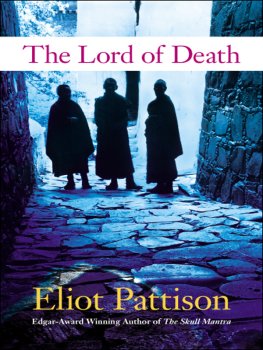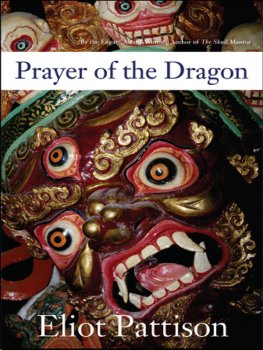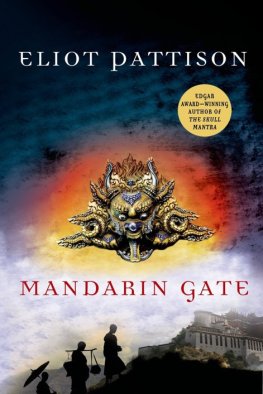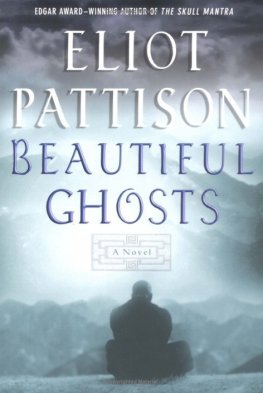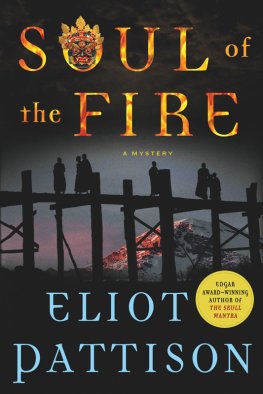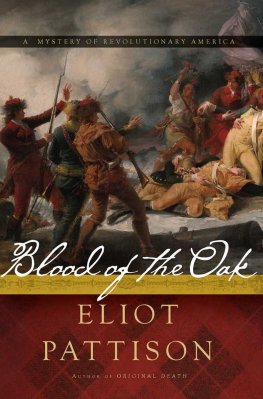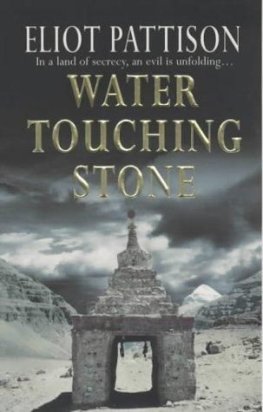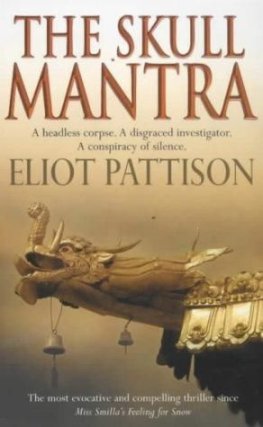Eliot Pattison - The Lord of Death
Here you can read online Eliot Pattison - The Lord of Death full text of the book (entire story) in english for free. Download pdf and epub, get meaning, cover and reviews about this ebook. year: 2009, publisher: Soho Press, genre: Detective and thriller. Description of the work, (preface) as well as reviews are available. Best literature library LitArk.com created for fans of good reading and offers a wide selection of genres:
Romance novel
Science fiction
Adventure
Detective
Science
History
Home and family
Prose
Art
Politics
Computer
Non-fiction
Religion
Business
Children
Humor
Choose a favorite category and find really read worthwhile books. Enjoy immersion in the world of imagination, feel the emotions of the characters or learn something new for yourself, make an fascinating discovery.
- Book:The Lord of Death
- Author:
- Publisher:Soho Press
- Genre:
- Year:2009
- ISBN:9781569476420
- Rating:5 / 5
- Favourites:Add to favourites
- Your mark:
- 100
- 1
- 2
- 3
- 4
- 5
The Lord of Death: summary, description and annotation
We offer to read an annotation, description, summary or preface (depends on what the author of the book "The Lord of Death" wrote himself). If you haven't found the necessary information about the book — write in the comments, we will try to find it.
The Lord of Death — read online for free the complete book (whole text) full work
Below is the text of the book, divided by pages. System saving the place of the last page read, allows you to conveniently read the book "The Lord of Death" online for free, without having to search again every time where you left off. Put a bookmark, and you can go to the page where you finished reading at any time.
Font size:
Interval:
Bookmark:
Eliot Pattison
The Lord of Death
Chapter One
No one ever died on Mount Chomolungma, the sherpas always told Shan Tao Yun when he was sent to retrieve a body. A man might freeze so hard his fingers would snap like kindling, his bones might be shattered in a thousand-foot fall, but the mother goddess mountain-Everest to Westerners-captured their spirits, keeping them alive and within her grip for her own purpose. They werent exactly alive, but they werent dead in the traditional sense, an old sherpa had warned him, as if Shan should expect the corpse he conveyed to be summoned back up the mountain at any time. More than one of Shans new friends in the climbing camps insisted that in the winds blowing from the summit they sometimes heard the voices of those who had died years earlier. Shan glanced at the snow-capped peak as he soberly tightened the rope fastening his canvas-wrapped burden to the pack mule, lightly resting his hand for a moment on the roundness that was the dead mans shoulder. This one had been a friend. If Shan heard the voice of Tenzin Nuru on the wind he would recognize it.
He had taken several steps down the trail when the lead rope jerked him backward. The old mule, his steady companion on such treks, refused to move. Shan studied the high, windblown landscape warily, trusting completely in the animals instincts. The Tibetans always gave him the same mule, a graceful long-legged creature, whose bright intelligent eyes followed Shan attentively as he recited ancient Chinese poems during their descents with the dead. Its ears were back now, its head cocked.
He heard the sound of hooves on the loose gravel a moment before a small horse, saddled but riderless, burst over the low rise ahead of them. Rock and roll music blared from a battered tape player suspended on a string from the pommel; an old bolt action rifle dragged in the dirt, hanging on a broken strap. Shans heart sank, then he leapt for the reins to stop the horse and grabbed the gun, deftly popping out the magazine and tossing it into the rocks. He glanced quickly about for a side trail to flee down. Then, finding none, tossed his coat over his cargo, calmed the horse by stroking its neck, and shut off the music.
A moment later a man in a tattered gray uniform trotted over the rise, panting, spitting a quick curse as he recognized Shan. He paused and straightened his tunic, awkwardly accepted the rifle from Shan, then turned the weapon around and aimed it at Shan. In the name of the Peoples Republic I arrest you, the man said in a weary voice.
Shan stroked the horses neck. On what charges today, Constable Jin?
The constable, a Tibetan in his mid-thirties who had assumed a Chinese name when hed put on the Chinese uniform, eyed the mules cargo uncertainly. Murder? he offered in a hopeful tone. Jin Bodai did not work for the dreaded Public Security Bureau but for the county, as a law enforcement functionary whose main job consisted of checking on permits and writing up traffic violations.
Shan watched patiently as Jin tucked his carbine under one arm then untied the outer rope on the mules bundle, exposing Tenzins head. The constable lifted the head by the hair, bent closer to study it, then dropped it, and looked back at Shan with a quizzical expression.
Any doctor, Shan explained in a steady voice, even those in Tingri county, would tell you this man died at least two days ago. A dozen people could testify I was with them two days ago, in town, working at the warehouse.
Jin, more peeved than ever, jabbed the gun toward Shan again. Still, he ventured, a man without his papers, an illegal carrying a corpse. It would be enough to get me off this damned mountain at least.
You lost your ammunition, Constable. Hardly a week went by when the two of them did not spar, but more than once Shan had rescued Jin by preparing paperwork needed for Chinas vast law enforcement bureaucracy.
Jin opened the bolt of the gun, saw the hole where the magazine should have been then cursed again, in the tone of a crestfallen child. A piece of junk, like everything else they give me, he groused. The gun, like his uniform and nearly everything else used by his small office in Shogo town, was a hand-me-down from the Public Security Bureau.
Illegal transportation of a corpse might work, Shan suggested. Even unlicensed disposal of the dead.
The constable brightened. I arrest you for illegal transport of a corpse.
But not this day, Shan continued in a fatigued voice. The mule nudged him, as if reminding him of their task. Not this corpse.
Jin sighed, lowering the rifle. Why not?
Shan pulled a bottle of water from one of the packs, poured some into his cupped hand for the mule to drink. Because this sherpa is from Nepal. Take us in and youll have to call Public Security, who will begin asking how a foreigner got across the border in your district without papers. A dead foreigner. Then theres a whole other set of paperwork for international shipment of bodies. Youll spend a week filling out papers, and you wont have me to help if I am behind bars.
Jin winced.
Then, Shan said, youll spend the rest of the season dealing with all those who complain about how bad it is for business to suddenly have policemen flooding the Westerners climbing camps.
The constable worked his tongue in his cheek. Better than chasing this damned nag up and down the mountains.
The mule gave Shan another impatient nudge. It seemed to be remembering, as Shan did, that they still had miles to go before turning the body over to villagers from Tumkot, where Tenzins kin waited for his body. Then you wont do it, Shan said with a tinge of shame, because if you hold me up any longer I will not return to work on time and in this county the man I work for is the senior Tibetan member of the Party.
The constable sagged. He extracted a crumpled pack of cigarettes, lit one as he settled onto a flat rock then studied Shan with a suspicious air. Theres a name for people like you on the other side of the ranges, he observed as he exhaled a column of smoke. Untouchables. Disposers of the dead and other garbage. The lowest caste of a low society. Youre Chinese. Youre educated. Why do you let them do this to you?
I prefer to think of it as a sacred trust. Shan extracted two apples from a pouch on the mules harness, offered one to the horse, the other to his mule. As he did so he studied the equipment hanging from Jins saddle, noting for the first time the heavy ammunition belt tied around rain gear at the back of the saddle, beside the portable radio Jin usually left switched off in the field. What particular war did you come up here to fight, Constable?
Jin frowned. I left headquarters to check out a report of stolen climbing equipment. Ropes and harnesses taken from the base camp two days ago.
But?
I was stopped by a Public Security lieutenant with a truckload of troops. A security alert has been declared, he announced. Minister Wu, head of tourism, is traveling up the road to the base camp today. So the lieutenant changed my orders.
They didnt give you all that ammunition because of tourists.
Jin inhaled deeply on his cigarette, studying Shan, no doubt weighing how much he needed Shan to navigate the bureaucracy. He shrugged. Since the road was going to be closed they decided to do a fidelity raid, at Sarma gompa, one of the little monasteries up the valley. Just one bus, with an escort of knobs, he explained, using the common slang for soldiers of the Public Security Bureau.
Shan fought a shudder. After destroying nearly every monastery in the region decades earlier, Beijing had allowed a few of the surviving gompas to operate under the close supervision of the Bureau of Religious Affairs. One of the many tools that Religious Affairs used to keep the Tibetan monks closely leashed was forcing them to sign loyalty oaths to Beijing. Individual monks who refused lost their robes. But when entire groups refused to sign, it was considered an act of organized resistance to the government. They would be given one final chance to sign, then rounded up for imprisonment in Tibets gulag. Shan closed his eyes a moment, fighting a flood of wrenching memories from his own years of imprisonment in one of those camps.
Font size:
Interval:
Bookmark:
Similar books «The Lord of Death»
Look at similar books to The Lord of Death. We have selected literature similar in name and meaning in the hope of providing readers with more options to find new, interesting, not yet read works.
Discussion, reviews of the book The Lord of Death and just readers' own opinions. Leave your comments, write what you think about the work, its meaning or the main characters. Specify what exactly you liked and what you didn't like, and why you think so.

